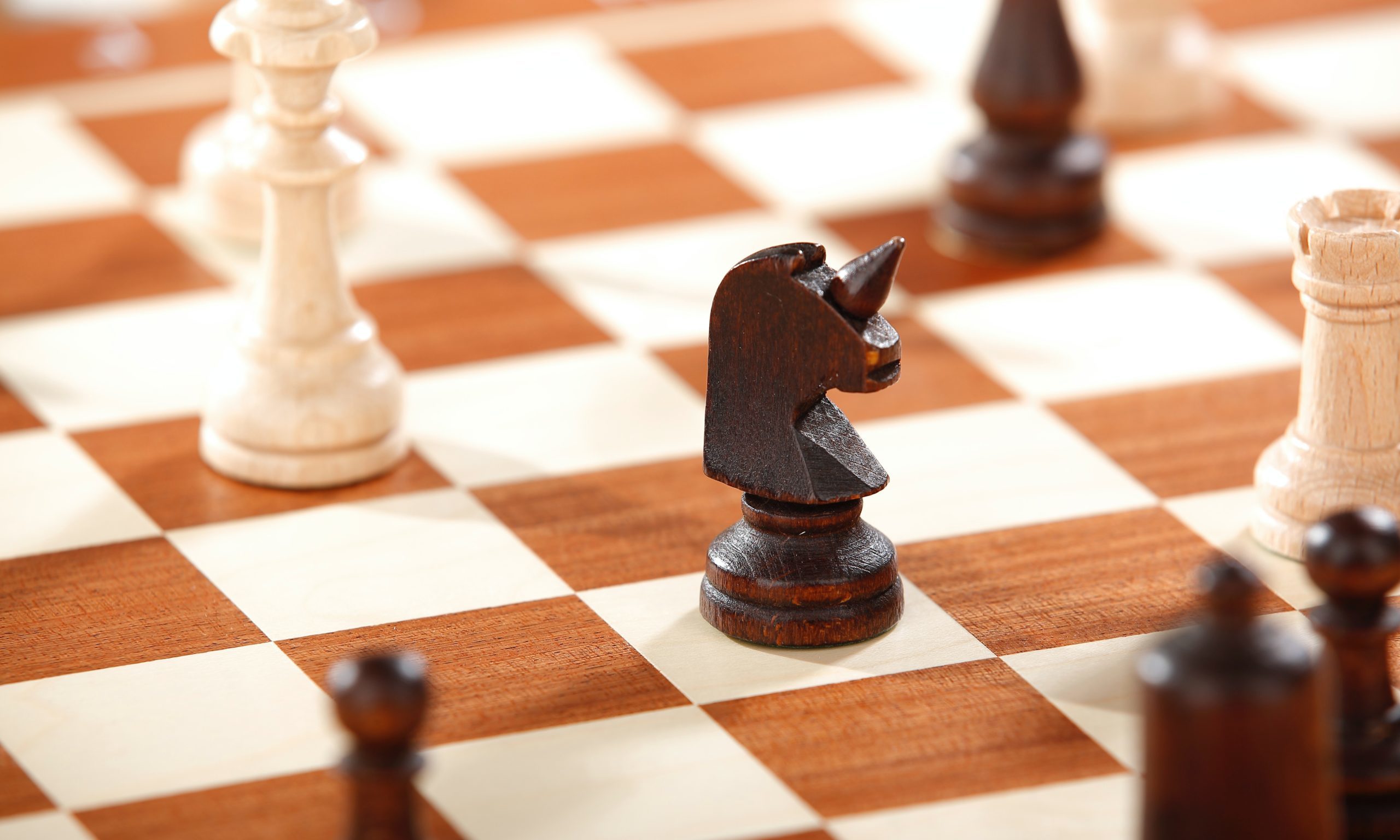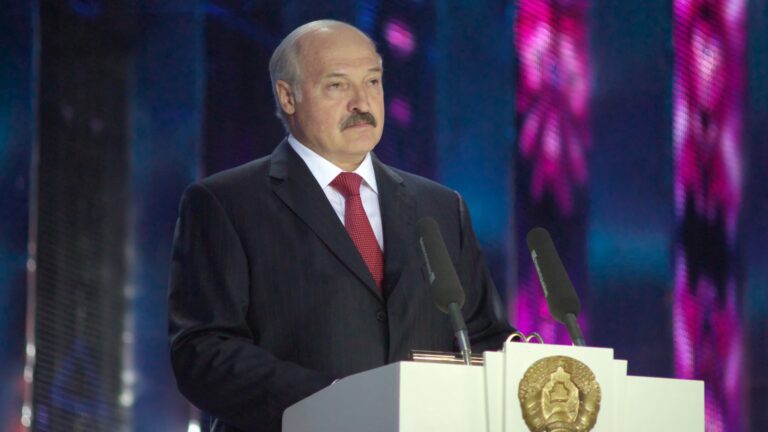
Despite media narratives minimizing the agency of CEE states and Taiwan, their role in international relations should not be reduced to being merely passive receivers of bigger players’ decisions. Their historical experience dealing with Russia and China can serve as important source of knowledge and inspiration when it comes to building resilience in the face of authoritarian powers.
In recent weeks, Taiwan has dominated the headlines globally. As Nancy Pelosi was heading towards Taipei on August 2, hundreds of thousands of people followed her plane’s route online, while Beijing and its state-affiliated media threatened to take “forceful measures” in response to the visit. The US delegation, however, landed successfully and without any major disturbances. This was the first sign to the global audiences, oftentimes unaccustomed to China’s hostile rhetorical style, now known as “wolf warrior diplomacy,” that Beijing’s response might not be as harsh as expected.
In the days leading up to the visit, some observers even speculated that we might be on the brink of global war. With sensational blurbs heralding a coming Sino-American conflict over the island, it was easy to get distracted from the fact that Taiwan is not merely a pawn in the bigger players’ game and has its own perspective on the current tensions. In fact, its often-overlooked agency bears many similarities with the way Central and Eastern European (CEE) countries are often portrayed in international debates.
CEE and Taiwan in Great Powers’ Shadow
Taiwan and CEE countries’ experiences concerning their relations with bigger, assertive regional powers could and should be compared. These comparisons, however, do not necessarily have to concern specific historical events, but rather broader dynamics shaping their current geopolitical realities.
As many CEE states went through rapid democratization in the aftermath of the Soviet Union’s collapse, Taiwan’s historical experiences have followed a similar trajectory of social change. Although the underlying causes of these processes were different in both cases, more than three decades of economic and political liberalization have both ushered in dynamic pluralistic societies.
Distinct identities, oftentimes based on the rejection of values and norms advocated by the Chinese Communist Party (CCP), have cemented in Taiwan, while its economy has become one of the most innovative in the world, with its crown jewel TSMC dominating the global semiconductor market. In 2021, Freedom House ranked Taiwan as the second freest place in Asia after Japan.
Meanwhile, the CEE states have integrated with Western institutions and frameworks for cooperation, such as the EU or NATO, distancing themselves from Russia and further internalizing democratic values. At the same time, both the CEE countries and Taiwan have continued to live under the shadow of geographically close, yet normatively distant powers, whose policies have become increasingly assertive.
Russia’s neo-imperial ambitions have materialized in the form of its attack of Georgia in 2008 and subsequent aggression against Ukraine and occupation of the Crimean Peninsula in 2014. For some CEE countries, especially those with first-hand experience of Russian oppression such as Poland or the Baltic states, these events were yet another proof that Moscow continues to pose a grave threat to Europe’s stability.
Unfortunately, these concerns were often neglected by bigger European players such as Germany or France, leading to a misperception among some decision makers and observers that CEE is a region dominated by unreasonable Russophobia. This theme has been also widely exploited in Russia’s own disinformation efforts.
Similarly, China’s policies regarding Taiwan have gained an increasingly sharper edge over the years, with Beijing making it clear it is ready to use force to achieve ‘reunification’ after the third Taiwan strait crisis of 1995-1996, with concerns about the possibility of a kinetic conflict between China and Taiwan with the involvement of the US growing. Twenty years later, Beijing’s military power is undoubtedly much stronger, while its international posture and ambitions can be characterized as openly revisionist. For Taiwan, this makes the threat of invasion even more imminent.
Great Power Logic, Small Power Dilemmas
The US seems to have realized the scale of the challenge posed by China with some delay and is now trying to counterbalance China’s growing power across different domains. Support for like-minded partners is among them, with formal and informal alliances playing an important role in Biden’s foreign policy.
For the Chinese Communist Party, these efforts illustrate Washington’s ambitions to contain China’s rise. Pelosi’s trip to Taiwan brought the Sino-American tensions to yet another low point, with Beijing escalating its own rhetoric, also in CEE countries. Similarly to what Moscow has done in the context of its invasion of Ukraine, Beijing is now trying to frame its increasingly aggressive policy towards Taiwan as a result of Western “provocations.”
The regimes in Beijing and Moscow share a similar viewpoint on how the world works: they both seem convinced that the international order is governed by power politics only. This kind of Darwinist outlook, coupled with their overarching goal to maintain regime survival, pushes China and Russia closer towards “partnership with no limits.”
Political elites in both countries feel “strategically isolated” by the US and its allies, thus they are willing to turn a blind eye to some of the tensions in their bilateral ties for the sake of revising the current Washington-sanctioned rules of the game. In the context of Russia’s invasion of Ukraine, Beijing has expressed tacit approval for the war, calling it a “special military operation” and mirroring Moscow’s anti-Western propaganda.
Despite lofty statements about their support for global peace, both China and Russia seem ready to attack or intimidate third parties, especially those smaller and militarily or economically weaker. While Moscow does it through direct military means, Beijing still prefers to use indirect means of coercion to influence CEE countries’ behavior. This can be illustrated with informal sanctions imposed on Lithuania after the Taiwanese Representative Office was opened in Vilnius last year. Meanwhile, Taipei keeps living under constant pressure from Beijing, including growing numbers of incursions into Taiwanese air defense identification zone by Chinese warplanes or disinformation campaigns.
Resilience in the Time of Crisis: Lessons from CEE and Taiwan
CEE states have been traditionally accused by some Western European observers and decision makers of overstating the Russian danger. Although the recent turn of events in Ukraine has at least partially reversed this trend, CEE as a region needs to strengthen its own resilience in the face of Moscow’s revisionism. This applies both to the military capabilities and the overall political clout of these countries in the international debate.
Just like Russian disinformation tactics aim at weakening European unity and solidarity with Ukrainians, Beijing’s rhetoric regarding Taiwan also seeks to alienate the island and marginalize its own perspective on the current tensions. The same applies to other countries’ oftentimes ambiguous position towards Taipei. For example, Chinese state-affiliated media perpetuate a narrative about “international community affirming support for “One-China Principle,” equating it with “One-China Policy.” The former implies full approval of Beijing’s claims over Taiwan, while the latter is a widely implemented policy that recognizes China’s perspective, but not necessarily accepts its alleged universality.
In this context, it seems crucial to underline the importance of local voices and their agency in promoting more nuanced views on the role of CEE and Taiwan in international affairs. For example, the intricacies of the domestic political scene and its impact on foreign policy, as well as the issues of historical memory can also shed a lot of light on the way CEE states and Taiwan position themselves regionally and globally. Instead of misrepresenting the intentions and perceptions of CEE states or Taiwan vis-à-vis Russia or China by copying simplistic views, asking at the source could help many international observers and analysts to escape the pitfalls of cultural and political essentialism.
When it comes to recent tensions between Washington, Beijing and Taipei, sensational headlines should be contrasted with the views of local experts, analysts and scholars, who are able to contextualize the current situation while taking into the account otherwise overlooked factors. As China wants to strengthen the threat perception among non-Chinese audiences afraid of yet another potential war, it seems essential not to perpetuate fatalism increasingly dominant in many international debates heralding the imminence of an armed conflict in the Taiwan Strait. Internalization of this kind of framing helps Beijing to further legitimize its increased military presence in its neighborhood.
In the end, infantilizing smaller states’ behavior and reducing it to a mere result of bigger powers’ pressure does not really help in understanding the complexity of international relations in a globalized world. Instead of fueling ‘great power reductionism,’ oftentimes in line with Moscow and Beijing’s interests, we should focus more on reaching out to local voices from both CEE states and Taiwan. Their experiences of dealing with authoritarian powers can offer important insights and guidance for those designing future policy responses vis-à-vis Chinese and Russian revisionism.
Written by
Alicja Bachulska
a_bachulskaDr. Alicja Bachulska is a Research Fellow at CHOICE and Policy Fellow at the European Council on Foreign Relations where she focuses on Chinese foreign policy and China-EU relations.


